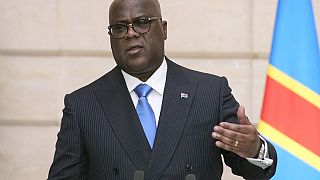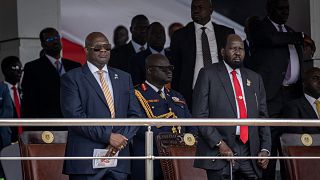Russia
The Russian parliament's upper house on Friday approved a bill that will punish those who search online for content it has officially branded as “extremist”.
It is the latest in a series of moves by the authorities to tighten censorship and control of the internet.
The legislation makes what it describes as “deliberately searching for and accessing extremist materials” online punishable by a fine of up to the equivalent of $64.
The bill, which was endorsed by the lower house earlier this week, is now set to be signed into law by President Vladimir Putin.
The Speaker of the Russian Federation Council, Valentina Matvienko, said there was a need to explain why the bill was necessary.
“So that people understand that this law will never affect a single conscientious citizen. That it is aimed at ensuring the security of the country, the fight against extremism,” she said.
The official definition of extremist activity is extremely broad and includes opposition groups like the Anti-Corruption Foundation, created by the late opposition leader Alexei Navalny, and the “international LGBT movement.”
It’s not clear how authorities will track down violators.
Officials and lawmakers said ordinary internet users won’t be affected and only those who methodically seek outlawed content will be targeted. They didn’t explain how authorities would differentiate between them.
Russians widely use VPN services for access to banned content, but authorities have sought to tighten restrictions and close the loopholes. The state communications watchdog has increasingly used technology to analyse traffic and block specific VPN protocols.
Russian authorities ramped up their multipronged crackdown on dissent after sending troops into Ukraine in February 2022.
Since then, online censorship and prosecutions for social media posts and comments have soared.
Multiple independent news outlets and rights groups have been shut down, labelled as “foreign agents” or outlawed as “undesirable” and hundreds of activists and critics of the Kremlin have faced criminal charges.
The bill is due to be signed into law by President Vladimir Putin.












01:13
China’s Xi and North Korea’s Kim meet in Beijing, pledge deeper ties
01:02
Ukraine moves to ban an Orthodox church it says is linked with pro-war Moscow church
Go to video
Vladimir Putin calls Congo a "friend and reliable partner" of Russia
01:00
Putin and Kim share limousine after China’s military parade
01:00
Putin and Kim attend Xi's grand military parade in Beijing
01:00
Xi Jinping welcomes Vladimir Putin for talks in Beijing